Chef Matt Orlando of Amas was recently in Bengaluru. He talks about how sustainable living can be a win-win goal
Chef Matt Orlando of Amas was recently in Bengaluru. He talks about how sustainable living can be a win-win goal
Words like tempura young pepper leaf, raw peanut milk confit, peppercorn caramel—zero-waste cooking and reusing ingredients—are just words until you sit down to a meal that includes these Fully fits the concepts.
At a recent dinner hosted at Araku Cafe in Bengaluru, Chef Matt Orlando teamed up with Chef Rahul Sharma to present a complete four-course meal made with produce collected from the Araku Valley in Andhra Pradesh.
Born in San Diego, California, Matt Orlando is known in Denmark for his restaurant Amas, where the dish of the day is sourced from the kitchen garden. He credits his openness to experimentation with his unconventional upbringing. “My parents instilled in me a broad outlook – do whatever you can to lead a more responsible life, do things that satisfy you.”
accompaniment with congee | photo credit: special arrangement
Matt, who began cooking at the age of 14, says he was cooking at Seafood & Steak House during high school. His stint at a restaurant called Fairbanks gave him a glimpse of the fine dining experience. “That was where I learned to respect food and see how it integrates into our lives on a daily basis; how we connect with people.”
He moved from San Diego to New York and from there to the United Kingdom and Europe before settling in Denmark in 2005, where he worked at Noma, a three-Michelin-star restaurant run by chef René Redzepi. He eventually opened Amas there in 2013.
“We started out as a regular restaurant and since I didn’t want to serve everyone else, we were anti-Nordic in terms of cuisine. Plus, we were getting our vegetables from France and Italy. That’s when our first winter ended. I was able to take a step back from the restaurant and look at it as a whole.”
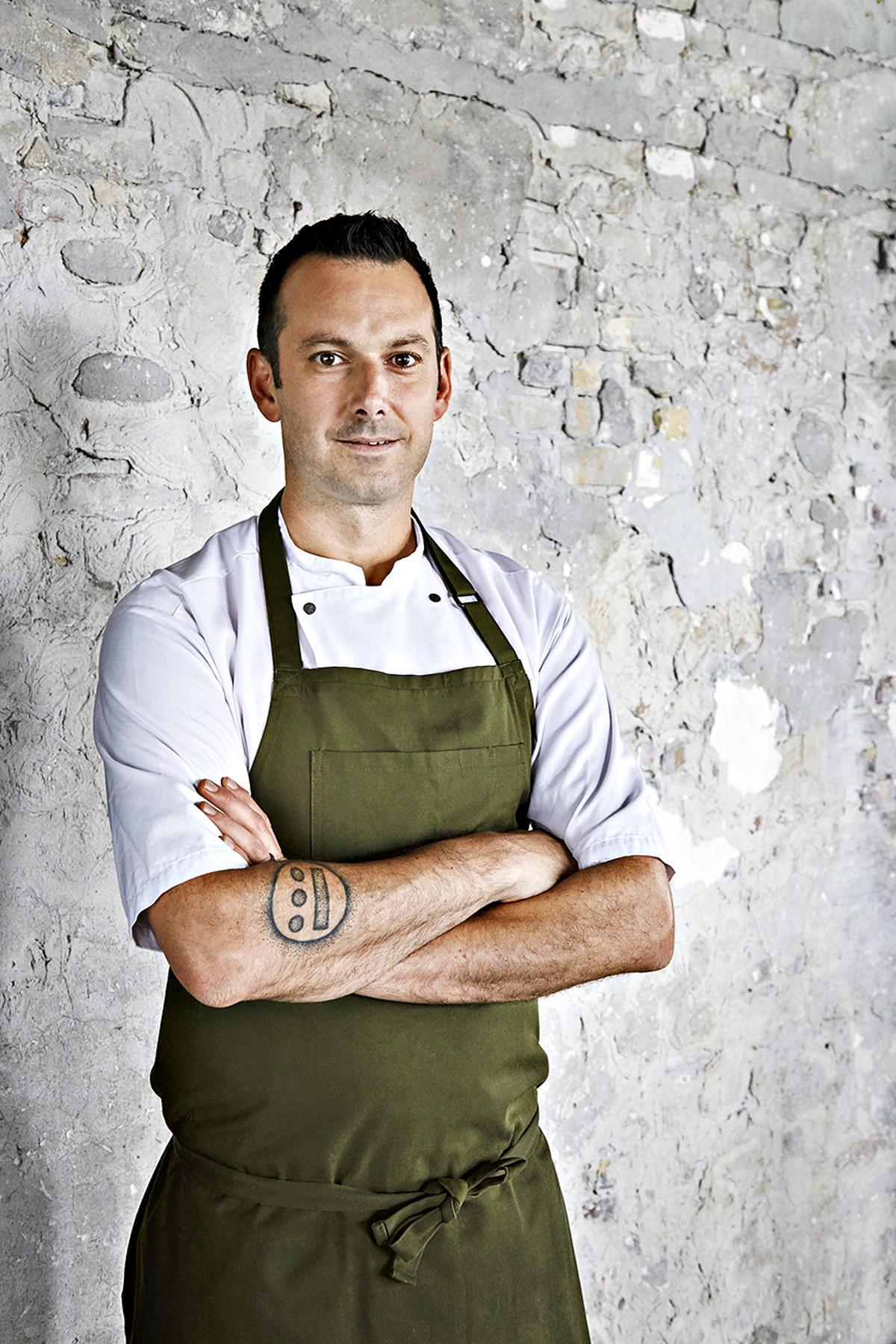
Matt Orlando | photo credit: special arrangement
“A friend asked me, ‘What’s next?’ And I said I would continue to cook good and make people happy. But the word ‘responsibility’ came to my mind at the time and I didn’t really know how to explain it in the context of a restaurant. Didn’t work in a restaurant where that word is used.”
trial and error
Even though he didn’t know how to go about it, Matt and his team took it seriously. “We didn’t have mentors telling us how to do things. We just figured things out systematically. We always ask – what’s the most responsible decision I can make regarding this situation?”
Over the years, Amas has earned a name for itself as an example of sustainable food. “The average high end restaurant produces about 21 kg of CO. 2 per guest over the course of a year and we produce 11.4! The average meal cost of a high-end restaurant is about 30%, with Amas reducing this to 17-19%.
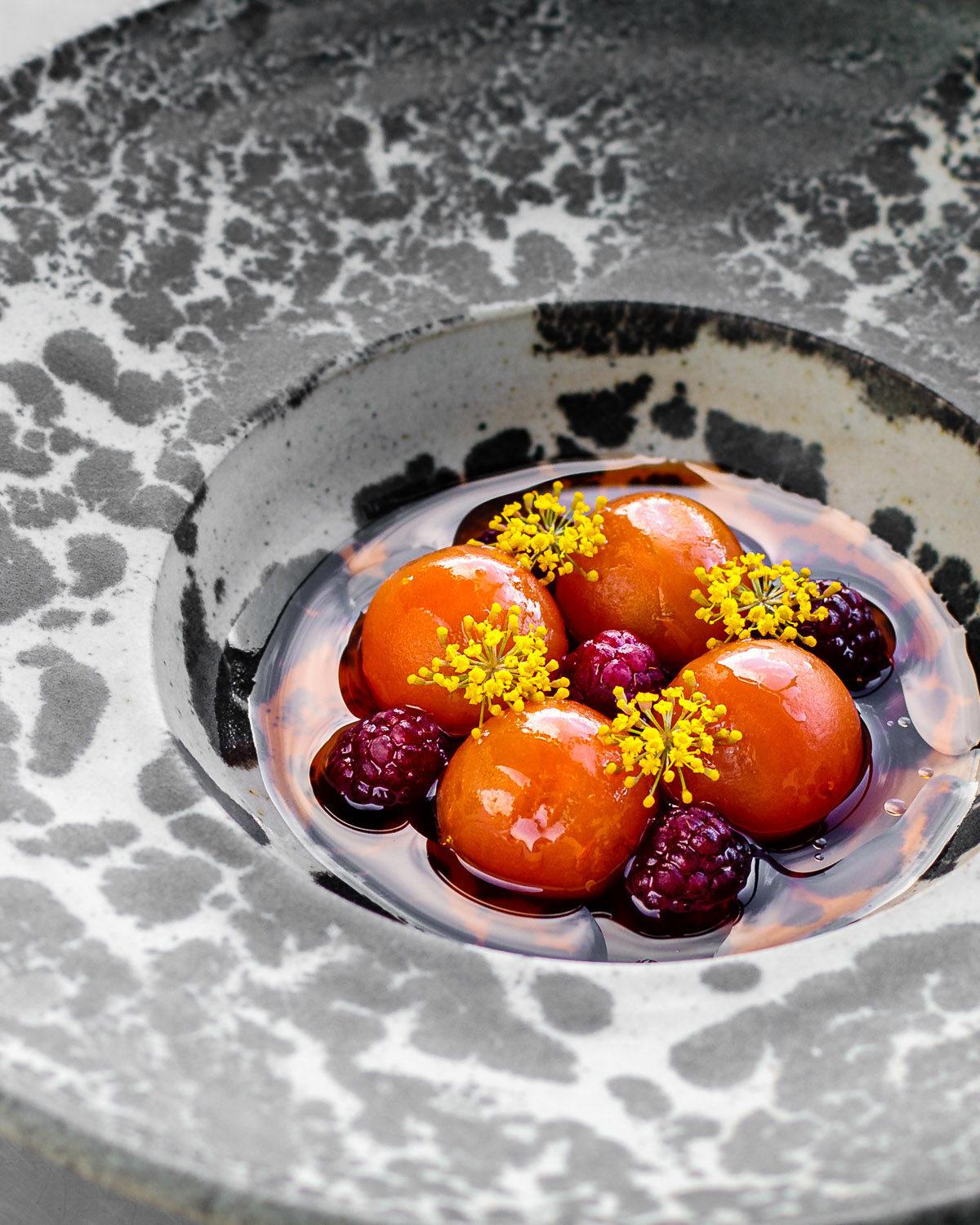
Matt says in Denmark, where all waste is burned, he has reduced his trash can by 85% since opening, adding that a financial case has to be made for an eco-friendly approach (see infobox ). “A big part of this process is how we cook – being aware of the potential of ingredients like blackened stems, citrus and pumpkin skins. We have figured out how to use cooking techniques such as blackening (the coating of food in a mixture of spices that gives it an almost black color when cooked), fermenting, pickling, and drawing to preserve and use them as actual ingredients.”
life mantra
Often asked to define sustainability in a nutshell, Matt says it all boils down to one word – awareness. “You need to be aware of everything around you and its potential; become aware of your impact as a person and how you affect the planet. Hopefully, you have a moral compass. that allows you to make the right decisions.
Matt understands that not everyone has the information they need to make the right choice and so spreading awareness has become part of Amas’ culture. “It sounds ludicrous, but if we all do our bit as individuals, there is a ripple effect that will most likely benefit the next two generations, even if we don’t see it in our lifetimes.”
Araku and back
“This is my third visit to India, but my first to Araku. To be honest, I was confused because when you go to such a place, you can see that large-scale agriculture can exist permanently. It’s a way of living that can be enhanced, but you get frustrated because in a society focused on money and power, there are too many forces outside your control. ,
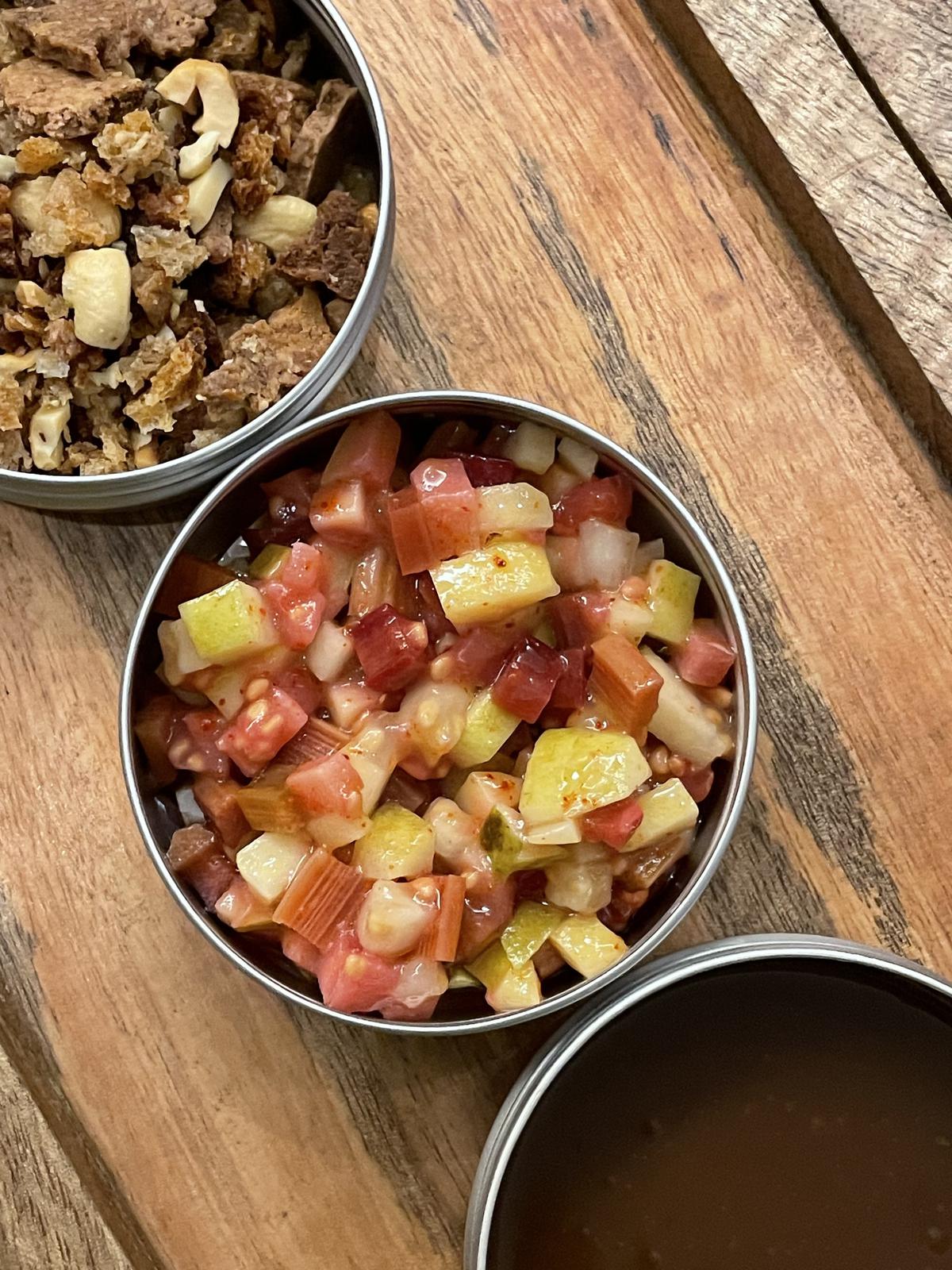
Marinated Guava and Rhubarb | photo credit: special arrangement
“Its beauty makes you feel reborn; You may want to reevaluate your approach to living a responsible life. Such places make me question my existence and what I am doing on a daily basis. It was one of those cross journeys. ,
Matt says he was amazed by the many herbs found in the valley, including millet and rice, white beans, squash, and zucchini. He and his team brought back four large boxes of produce needed for dinner in Bengaluru. Their menu included crunchy spiced anchovies, sourdough bread chips, marigold ragi, marinated guava and rhubarb, paired with organic wines.
birds of a Feather
Talking about his friendship with chef Rahul Sharma, whom he met in 2017, Matt says it started with just keeping in touch. “It was a quick text every month, just to see how the other was doing. It is exciting to see him blossom into his ideas.”
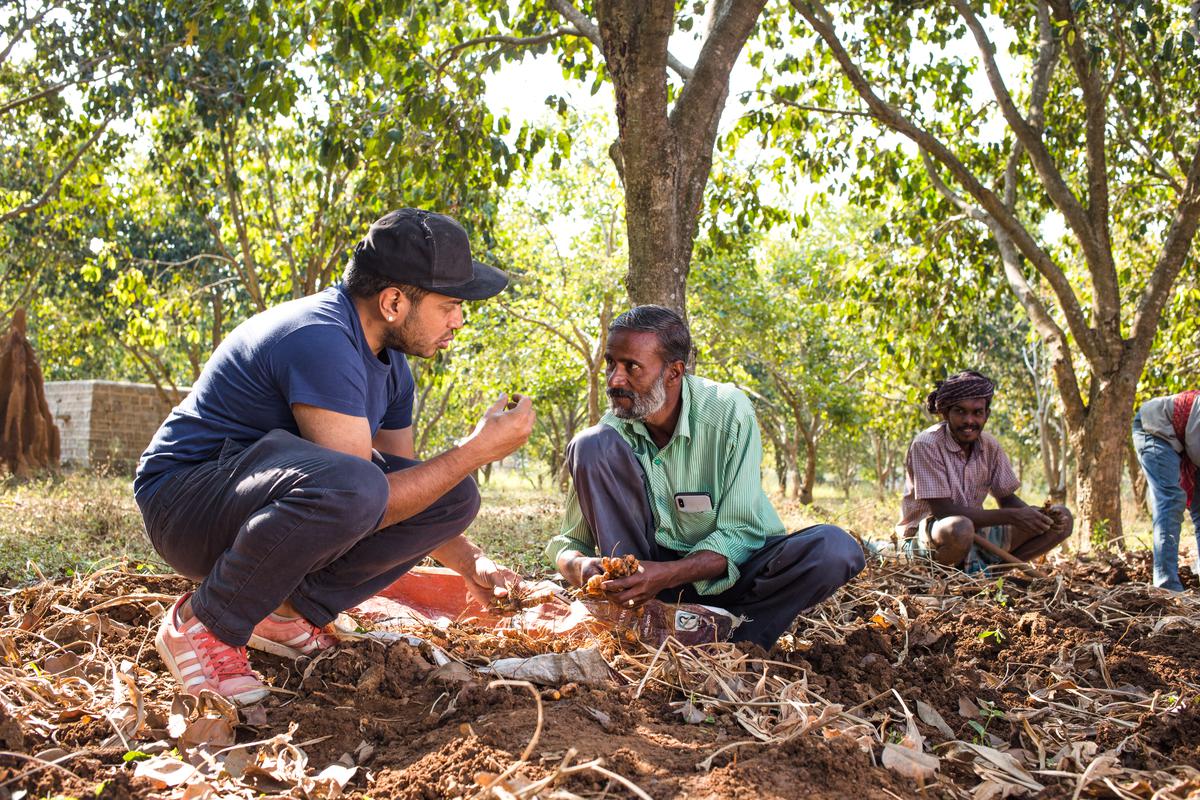
Rahul Sharma | photo credit: special arrangement
After his visit to the Araku Valley, Matt says that the two of them spoke at night. “We were talking about our lives and decisions, our process. Influence is a part of our core value. I am proud of him; They represent the valley whenever they cook for the general public. This has far wider implications than just opening a fine dining restaurant and cooking for a group of wealthy people. ,
walk the talk
Matt and his staff have created a culture within their restaurant to come up with the best way to use byproducts. One of the waiters got the idea to melt small candles into leftover cardboard eggshells and use them as firestarters for the barbecue.
“We save all the water that is kept on the table, but not used by the customers. We use it for our vegetable garden and to wash our floors. That’s about 100 liters of water a day that we don’t have to buy,” says Matt, adding that there is more than one benefit to going green. “The first year we did this, we just got a refund check for €17,000 for the water.”
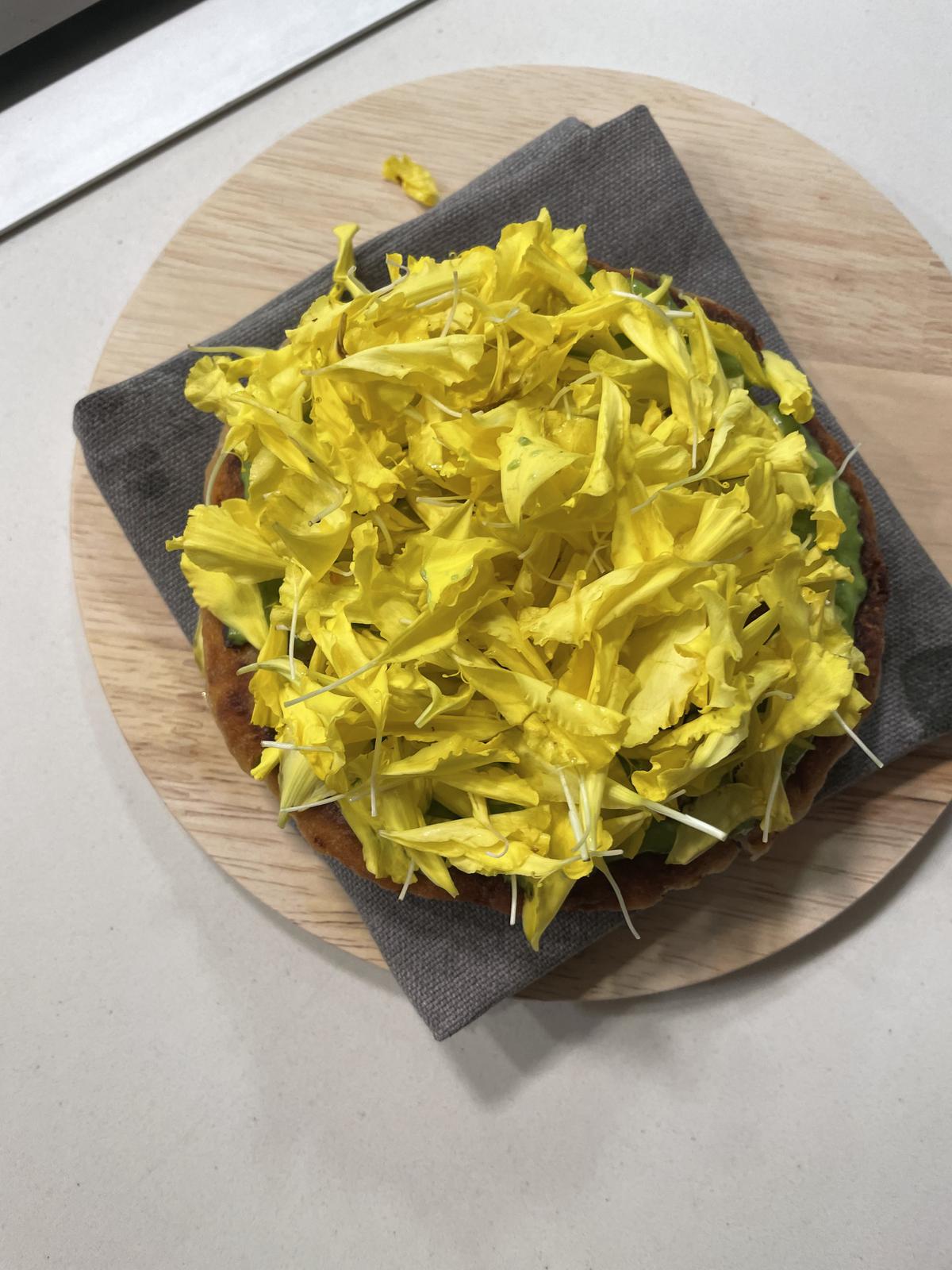
Garnish potato bread with marigold. photo credit: special arrangement